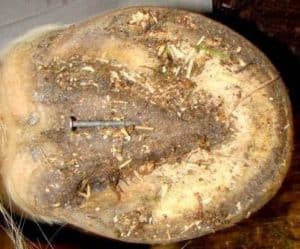
Managing and Preventing R. equi Pneumonia in Foals
Rhodococcus equi can cause significant economic losses, but researchers are still working to understand how and why it develops and how to prevent it.

Rhodococcus equi can cause significant economic losses, but researchers are still working to understand how and why it develops and how to prevent it.

How would you react if your horse stepped on a nail? One practitioner outlines the steps you should take.

Research suggests that bisphosphonates can effectively help control clinical signs associated with navicular syndrome in horses, but there’s less research on off-label use. Here’s what to know.

Veterinarians from Kenya and Tanzania attended WEVA’s first educational meeting in Africa, which featured presentations on what field practitioners might encounter in their daily practice.

In late 2018, the World Equine Veterinary Association held an educational intermediate meeting in Samarkand, Uzbekistan.

Find out how veterinarians used ozone to treat a mare with complications associated with superficial digital flexor tendinitis.

RESPE—the French epidemiological network for equine diseases—works main missions is to monitor equine diseases in France and throughout Europe and to alert the horse industry when a contagious equine disease outbreak is confirmed.

The World Equine Veterinary Association (WEVA) is busy preparing for its next biannual Congress, taking place Oct. 3-5, 2019, in Verona, Italy.
In April, WEVA hosted its 15th Congress in Beijing, People’s Republic of China, in partnership with China Horse Industry Association, the host country’s main equestrian association.

Research on equine airway issues is important as almost all horses suffer from respiratory tract disorders, some performance-limiting, at some point in their lives, veterinarians say.

It’s the question that always ignites a fierce debate in the racing world: Should people be able to race Thoroughbreds under the influence of therapeutic medication?

Find out how a veterinarian diagnosed a common cancer in horses in a Thoroughbred gelding with a recent history of headshaking and unprovoked panic.

Meconium impactions are the most common cause of intestinal obstruction and one of the most prevalent health issues overall in neonatal foals.

Find out how an owner’s careful management after an injury occurred likely prevented a fatal outcome for a Quarter Horse gelding.

If foals are diagnosed and treated early they generally have a fair to good chance to make a full recovery.

Here’s how veterinarians diagnosed and treated a Warmblood that stopped intermittently when working under saddle.
Stay on top of the most recent Horse Health news with
© 2022 Copyright Statement dolor sit amet, consetetur sadipscing User Terms, sed diam nonumy eirmod tempor invidunt ut labore et dolore magna aliquyam erat, sed diam voluptua. At vero eos et accusam et justo duo dolores et ea rebum. Stet clita kasd gubergren, no sea takimata sanctus est Lorem ipsum dolor sit amet.